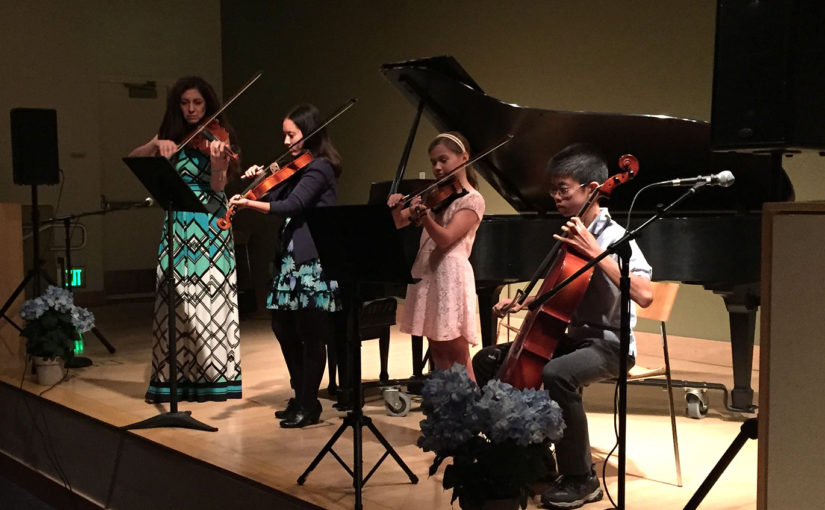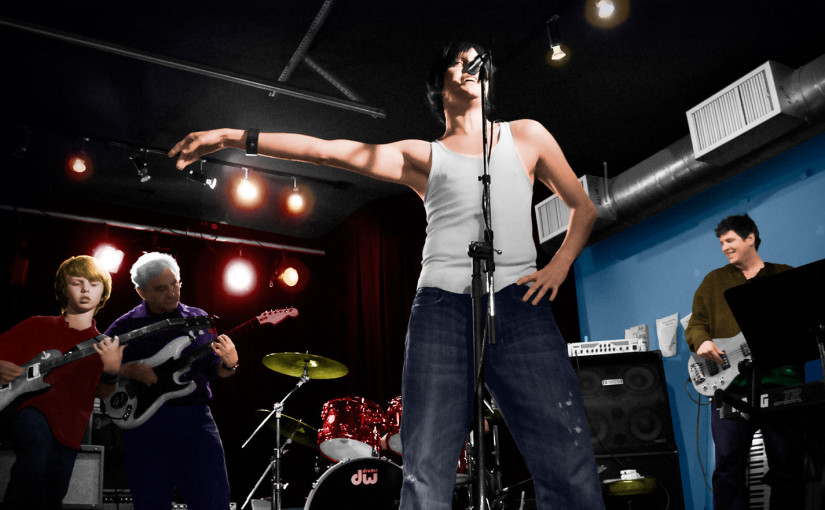1. Choose which instrument you want to study: Depending on what type of music you want to learn to play, particular instruments are going to be more suitable than others. For rock, pop, jazz, and other similar styles, guitar, piano, drums, and voice are great, versatile choices. Jazz also involves other wind instruments like saxophone, trumpet, and trombone, which you might want to consider if you are taking music lessons for jazz in Hollywood and Los Angeles. If you want to learn to play orchestral music, violin, and other string instruments are central, and other wind instruments like flute, clarinet, oboe, horn, and bassoon are also used.
Overall, you might also want to consider the versatility and the learning curve of what you wish to study. Some instruments, such as guitar, piano, and drums are used in a variety of styles of music, and though they may take a long time to truly master, they are also relatively easy to get started playing simple tunes on. Others, such as violin and double reeds, have more specialized uses and may take much longer to learn to produce a good sound. However, such instruments have unique sounds and abilities and can be extremely rewarding if you are willing to put in the time.
2. Acquire an instrument: In order to prepare for music lessons in Hollywood and Los Angeles, you will need an instrument of our own to practice on. Instruments are available at various price points, but to begin, a quality student-level instrument should suffice. You may want to consult with our music teacher in Hollywood and Los Angeles before our first lesson for advice on selecting a suitable instrument. Used instruments might require extensive work to become playable, so these are not necessarily recommended unless you can have a repair shop or experienced player check them over first.
Many instruments are available for rental from our music school, which can be an excellent option because these provide you with an instrument that is guaranteed to play, and you can learn more about selecting our own instrument when you choose to upgrade from a rental. If you purchase our own guitar, particularly a new or inexpensive one, you may want to take it to a guitar technician to be “set up”. Quite often, an inexpensive guitar can be made to play much more easily with some expert adjustment.
Some instruments, such as piano and drums, are not very portable and will be available at the school for lessons. Our music school in Hollywood and Los Angeles will have these available, as well as amplifiers if you choose to play electric guitar. However, you will need an instrument of our own at home on which to practice. For electric guitar, a small amplifier with a headphone jack is recommended so you can practice quietly. For piano, a digital keyboard is handy. There are several types of keyboard, so you might want to consult with our teacher first.
The keyboards with 88 fully-weighted keys are going to feel most similar to an actual piano, and most similar to what you would likely use in music lessons in Hollywood and Los Angeles. Smaller or non-weighted keyboards can also be useful for learning to play at first, though the feel will be a little different from an actual piano. Most synthesizers will also fit in this category. At the bare minimum, a touch-sensitive keyboard is recommended, which means that it can play loudly or quietly depending on how hard you press the keys.
3. Get the necessary accessories: Most instruments require additional equipment for proper maintenance and care. This will vary greatly by instrument, so you may want to check with our music teacher in Hollywood and Los Angeles for suggestions. For example, a set of strings, a guitar cable, and an amplifier with a headphone jack are helpful when playing electric guitar. Violinists will need rosin and a shoulder rest to play properly. Wind players may need reeds, cleaning supplies, or lubricants such as valve oil or cork grease. Because some accessories, such as reeds and strings, greatly affect the playability of the instrument, you should consult our teacher for advice on these before purchasing.
4. Set aside a time and a place for practicing: You will definitely need to put in regular time each week before our lessons in order to progress. As an adult, you have many responsibilities that can keep you busy, so if you are planning to practice whenever you have free time, you will likely run into trouble with working consistently. Setting aside a regular time each week in our schedule before you even begin lessons will certainly help you stay engaged with our lessons, will help you develop discipline, and will help you improve continuously.
Depending on our living situation, you might also want to consider how to practice without disturbing others. This is relatively easy with electric instruments, like keyboard or guitar, which can be used with headphones. An electronic drum set may be useful for practicing at home, or there are also mutes and practice cymbals available to reduce sound, and rubber practice pads for working on technique. Practice mutes are available for brass instruments as well, like trumpet and trombone.
5. Set some reasonable first goals: Our music teacher in Hollywood and Los Angeles will certainly help you with what to work on week by week. If you have a favorite song you want to learn, though, this will certainly help you stay focused on practicing and working on a goal. Once you start playing a particular instrument, you will have a better idea of its particular challenges. There are some common early landmarks to work towards, though, such as learning to play a melody on piano, a scale on saxophone, a basic beat on drums, or being able to strum the chords on guitar for an entire song.
By being prepared for our first lesson, you will be able to start more smoothly and progress more quickly. Being well-prepared from the start will also help you develop the discipline and practice skills that will serve you well in all our future playing. In any scenario, the Hollywood Academy of Music and Arts will be here to help you reach all of our musical goals – every step of the way.






